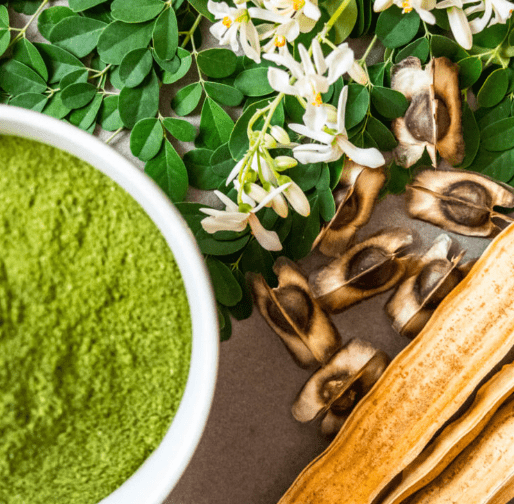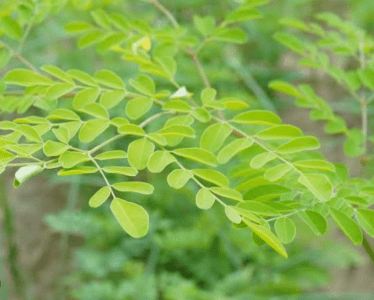In the quest for optimal health and nutrition, moringa oleifera, also known as the “miracle tree,” has emerged as a superstar. Native to the sub-Himalayan regions of India, Pakistan, Bangladesh, and Afghanistan, moringa has been celebrated for centuries in traditional medicine and cuisine. Today, its reputation as a superfood continues to grow, captivating health enthusiasts and researchers worldwide.
Nutritional Profile of Moringa
Moringa leaves are the standout feature of this remarkable tree, offering a rich array of essential nutrients. Gram for gram, moringa leaves contain more vitamin C than oranges, more calcium than milk, and more iron than spinach. Additionally, they are packed with potassium, vitamin A, and protein, making them an invaluable addition to any diet.

Health Benefits of Moringa
Moringa’s nutrient density is complemented by its potent antioxidant properties, which help bolster the immune system and protect the body from oxidative stress and inflammation. Studies suggest that moringa may also help regulate blood sugar levels, making it beneficial for individuals managing diabetes or at risk of developing the condition.
Culinary Uses and Preparation
In addition to its nutritional benefits, moringa is versatile in the kitchen. Its leaves can be used fresh or dried and powdered, adding a nutritious boost to soups, stews, salads, and smoothies. The seeds and pods of the moringa tree are also edible, offering a range of culinary possibilities.
Sustainability of Moringa
Moringa’s resilience extends beyond its nutritional value. Thriving in arid and semi-arid climates, moringa is a sustainable crop choice for regions facing food insecurity and climate change. Its fast growth and ability to thrive in diverse ecosystems make it a valuable tool for reforestation and soil restoration efforts.
Conclusion
In conclusion, moringa is a nutritional powerhouse with a wide range of health benefits and culinary uses. Its sustainability makes it a valuable asset in addressing socio-economic and environmental challenges. Incorporating moringa into your diet can not only improve your health but also contribute to a more sustainable future.
Click Here For Interesting News Articles
FAQs
- Is moringa safe for everyone to consume?
- Moringa is generally safe for most people when consumed in moderation. However, individuals taking certain medications or with specific health conditions should consult a healthcare professional before adding moringa to their diet.
- Can moringa be used as a weight-loss supplement?
- While moringa is nutrient-dense and may support weight loss as part of a balanced diet, it is not a miracle weight-loss solution. Healthy weight loss requires a combination of proper diet, exercise, and lifestyle changes.
- How can I incorporate moringa into my diet?
- Moringa leaves can be added to smoothies, salads, soups, and stews. Moringa powder can also be mixed into juices or sprinkled over meals for an added nutritional boost.
- Does moringa have any side effects?
- Moringa is generally safe for most people. However, excessive consumption may lead to digestive issues. It’s best to consume moringa in moderation and consult a healthcare professional if you experience any adverse effects.
- Is moringa environmentally friendly?
- Yes, moringa is considered environmentally friendly due to its ability to thrive in arid and semi-arid climates, its fast growth rate, and its potential for soil restoration and reforestation.










